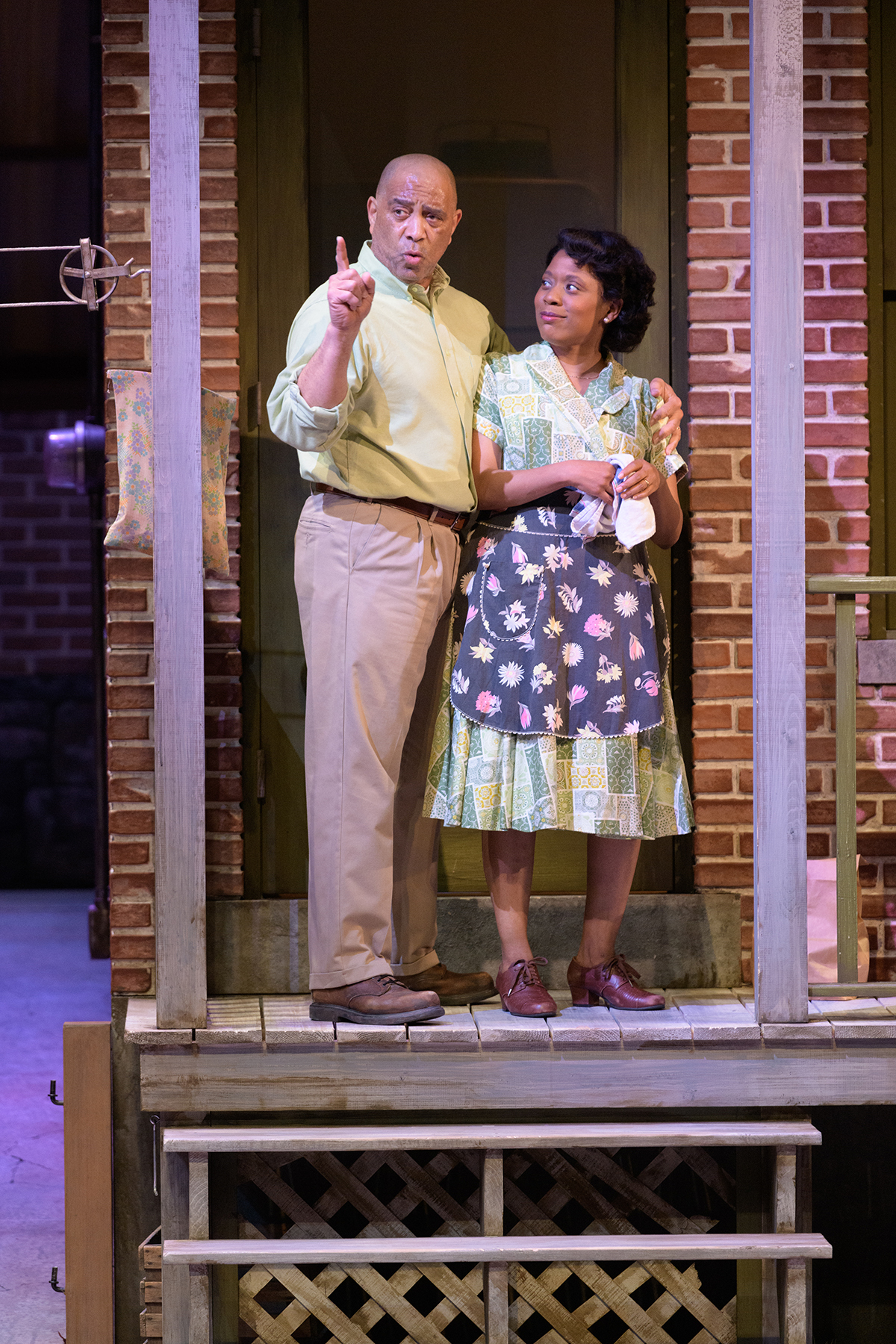Review: FENCES at UD Rep Ensemble

Bono, friend to Troy the protagonist in UD Rep Ensemble's FENCES, comments "Some people build fences to keep people out, some people build fences to keep people in".
Rich with allegory and biblical references (Gabe "Gabriel" speaks regularly to St. Peter and uses his trumpet at Troy's second act funeral to deliver Troy to St Peter, asking for peace from the fraught relationships Troy had with his family). I saw the fence as the emotional barrier between Troy and his sons from different marriages. That was my take. Others may see it differently. That's one of the reasons this profound play is what it is.
Playwright August Wilson's Pulitzer Prize and Tony Award winning play captures the experience of the African American in America. There was a white American Dream, there was disillusionment for blacks in that dream. It leaves privileged middle-class white people like me to squirming in their seats. The writer wrote it with that intent. I had never seen the play before nor did I see Denzel's award-winning movie. I kept thinking...wow...I would never had made the decisions that Troy made. But then, hallo, I'm milk bread white and was not raised in 30's, 40's America ripe with racism and discrimination. (My homogenous Brandywine High School class graduated 550 kids; 1 was black).
One would imagine portraying Troy would be right up there with Othello or Jack Johnson in THE GREAT WHITE HOPE in a great black actor's bucket list. Hassan El-Amin as Troy can check this one off. His compelling stage presence and his absolute belief in his character - warts and all - uplifted the audience and gave them personal understanding of the indignities suffered not only by Troy but, by extension, black society.
Wife Rose (Lisa Strum) conveys a much more passive approach as the dutiful wife. Absolutely dedicated to Troy, she transmits to us the pain when he tells her his long-time paramour is pregnant..." I buried all my dreams in you! You were my husband!" While Rose will stay with her - and eventually adopts the baby when the mother dies in childbirth - "from now on this child has a mother, but you a womanless man".
Rose is accepting of her life. Troy is not. He rails against his society on both a minimalist and global way. His constant refrain is "a man's got to do what's right for him". The audience is left to question what is right for Troy may not be so for those around him. He achieves some measure of self-worth on the former when he confronts his employer (a garbage company) and asks why only whites drive the trash trucks, becoming the first black man to drive.
FENCES is a demanding show. It challenges. It's not for the faint of heart. It's protagonist is as comforting as Trump's Stephen A. Miller. The play's conclusion, to understate, by no means tie up loose ends. But then, just how was it like to grow up black in racist America? The majority of us haven't a clue.
Through May 12 UD Rep Ensemble 302.831.2204
Reader Reviews

Videos

